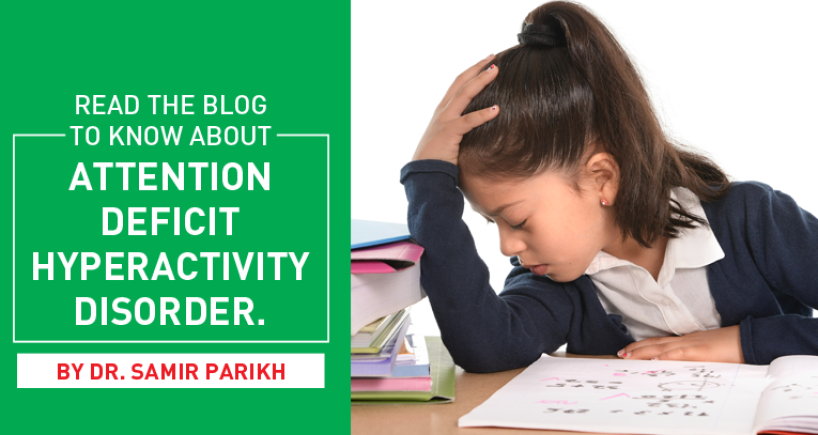
Adhd Awareness Month

Hearing parents and teachers alike complain about children who are extremely hyper-active, or who are not paying attention in the classroom is extremely common, as they indeed are faced with many challenges in dealing with such children. With growing awareness about mental health and its related concerns, though there are instances when such children are labelled or identified as suffering from attention deficit hyperactivity disorder (ADHD). However, it is necessary to ensure that we all have a complete and correct understanding of the disorder to ensure a correct and timely identification of the same. As we commemorate this month as ADHD Awareness Month, let us spend some time gaining a clearer understanding of the same, while also identifying some warning signs to help in the identification and timely interventions as well.
Understanding ADHD
A child with Attention-Deficit/Hyperactivity Disorder (ADHD) would exhibit a pattern of inattention and/or hyperactivity-impulsivity that would be significantly interfering with the child’s academic, social as well as daily functioning. It is important to note that such inattentiveness and hyperactivity is commonly seen in many children. But a child with ADHD would persistently display such a pattern of behaviour for at least 6 months, and would be developmentally inappropriate, typically being observed during school years before the age of 12 years. Furthermore, such behaviour would be displayed not just in school but also at home, or in other settings as well.
Identifying Signs and Symptoms
It is important to remember that a child with ADHD could present with either inattentive behaviour, or with hyperactivity-impulsivity, or even a combination of both, which leads to significant interference in the child’s functioning or development in personal functioning, at home as well as at school.
A child’s Inattentive Behaviour can typically be manifested in the form of the following:
- Easily distracted
- Carelessness
- Forgetfulness
- Unable to work at a single task for a sustained time period
- Frequently leaves tasks unfinished
- Not seeming to listen even when spoken to directly
- Often does not follow instructions
- Difficulties in organizing tasks
- Often fails to give close attention to details
- Tendency to avoid, dislike or be reluctant for activities or tasks which require sustained mental efforts
On the other hand, Hyperactivity and Impulsivity in children could include the following manifestations in their behaviour:
- Seeming to be constantly ‘on the go’
- Excessive fidgeting/squirming
- Frequently leaving the seat
- Talking non stop
- Unable to do anything quietly
- Impatience
- Frequently interrupting or intruding
- Often excessively talkative
- Difficulty in waiting for turns
Treatment and Seeking Help
Once you have identified a child you suspect of being at-risk for ADHD, he/she requires a formal assessment by a mental health professional, along with adequate interventions by the combined effort of a team of mental health experts including psychiatrist, psychologists, remediation specialists, occupational therapists, art therapist, etc. In order to effectively rehabilitate the child, it is important to make his or her re-integration into society and in his or her everyday life and routines as smooth as possible. Along with behavior therapy, social-skills training are important to enable the child to form sustainable peer relationships and to enhance the acceptability and self- esteem of the child.
Categories
Clear allMeet the doctor

- Mental Health and Behavioural Sciences | Mental Health and Behavioural Sciences | Psychiatry | Clinical Psychology
-
21 Years
-
900



















